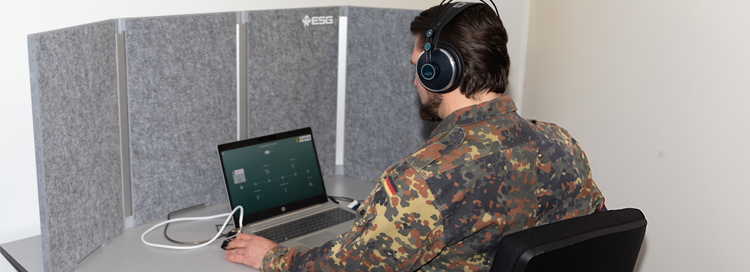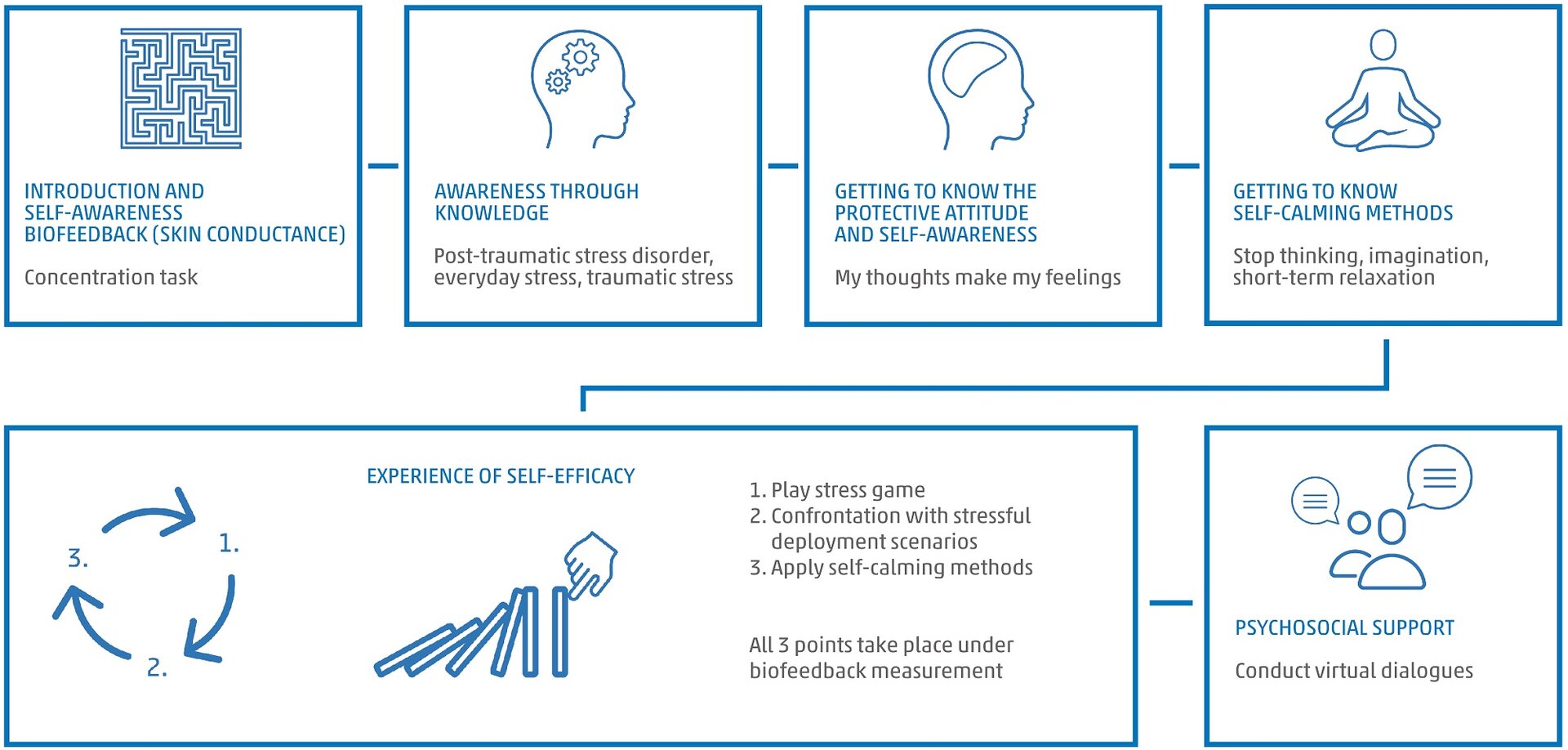Protracted stress-related illnesses can occur as the result of mental stress during service. Specialists also call this post-traumatic stress disorder. With the CHARLY interactive Blended- Learning-Training platform, soldiers train to successfully cope with psychological deployment stresses.
Innovative concept
for individual behavioural training

The concept of CHARLY BW differs significantly from other existing training approaches. With the CHARLY platform training is not only given on a cognitive level in an interactive and sensor-based setting, but also individual behaviour training is initiated through self-awareness and testing of self-management methods.
In an evaluation study by the Bundeswehr’s Psychotrauma Centre, the effectiveness of the CHARLY method was compared with known procedures. This showed significantly fewer trauma-specific symptoms among CHARLY training participants after service abroad in Afghanistan. Accordingly, the CHARLY training has a higher degree of efficiency than the methods known hitherto for service preparation or primary stress prevention.
BUILDING BLOCKS OF THE TRAINING
Communication, knowledge, self-calming and self-efficacy for sustainable mental fitness.
Communication:
The participants practise communication – both to acquire psychosocial support for themselves and to assist someone else through an opportunity to talk in a mental stress situation.
Knowledge:
In this module, everyday stress, the distinction between an acute stress reaction and the symptomatology of post-traumatic stress disorder are addressed. On the other hand, the mental processes after experiencing traumatic stress and possible protective attitudes as well as purposeful personal beliefs as prevention of stress consequences are discussed.
Self-calming:
The methods of self-calming comprise coping skills with which the vegetative consideration can be reduced in an acute stress situation. Participants will practice and try out three easy-to-learn, standardised and pragmatic relaxation techniques.
Self-efficacy:
Stress is induced in the training through a stress game and confrontation with a realistic service situation. After that, relaxation techniques are applied. This involves using physical monitoring to measure heart rate variability throughout the session. In this way they experience self-efficacy – the participants find out that through their self-management they can control vegetative sensitivities in their body. The application of biofeedback is therefore an essential element of the CHARLY concept.
COURSE OF THE TRAINING
The training participants are guided through the system by a virtual coach. They experience their own stress reaction in an experiment. Case studies are used to illustrate the development and symptoms of post-traumatic stress.
They train selected stress management methods and test them in confrontation with realistically illustrated stress scenarios. Their effectiveness is immediately and objectively tested via the biofeedback interface.



